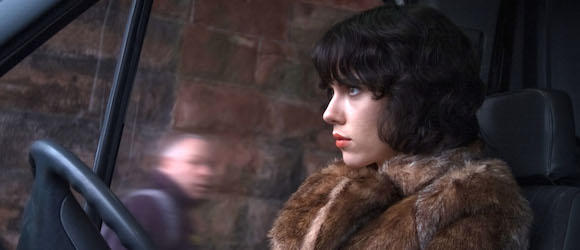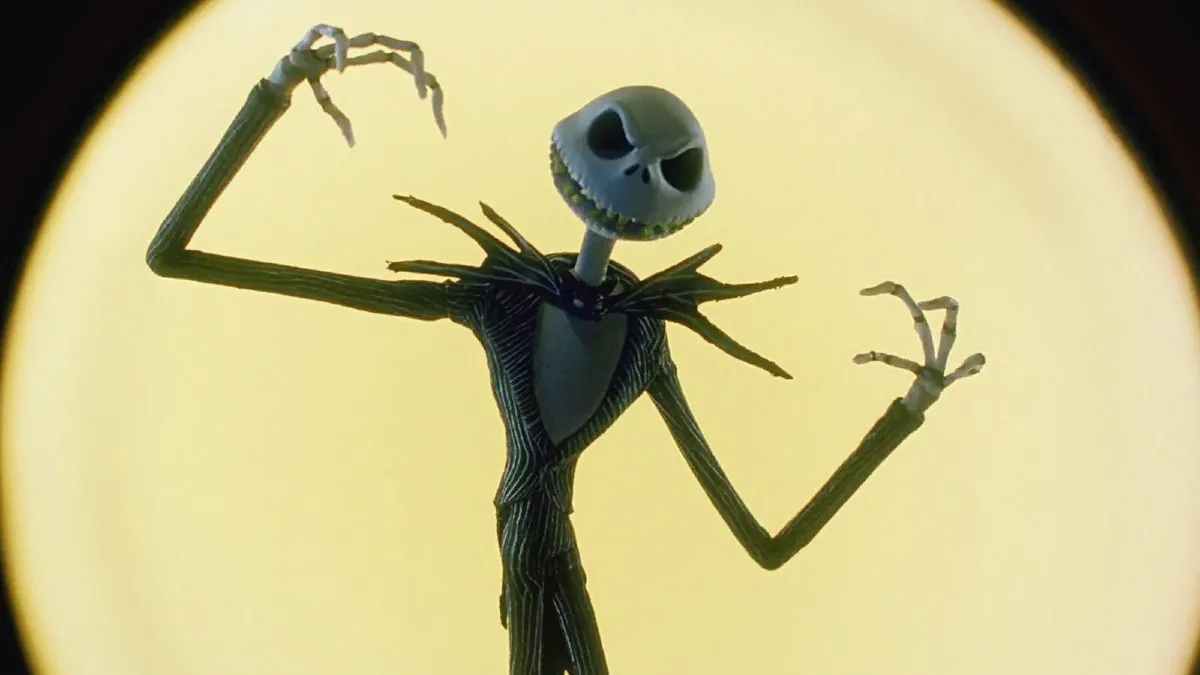In the chilling science-fiction thriller Under The Skin, The Avengers‘ Scarlett Johansson plays a black widow of another kind. She’s an extraterrestrial predator. With a camouflage of plump red lips, snug fitting acid washed jeans, a curvy figure and a battered van, she trolls the streets of Scotland looking for would-be lovers. But when she lures them back to her lair, these men discover they are just fresh meat in the literal sense. On its surface, this feature is a slick and sick bit of horror. But under the skin it is a lesson in rape culture targeted specifically at men.
The gender dynamics of horror typically play out with killers being male and their victims being female. Under The Skin turns the tables on this traditional setup, and with it creates a reverse of contemporary rape culture where violence against women is so common that women are casually warned to be ever alert for those who might harm them. In rape culture, the blame for what might befall women is thereby put on their shoulders in place of their potential rapist. By and large men don’t worry about their safety in the same way when walking home late at night. But in the world of Under The Skin, they absolutely should.
As this review explores specific themes of the movie, heavy spoilers for Under The Skin lurk below:
The modus operandi of alien hunter Laura (Johannson) is simple. She puts on a cheery but puzzled smile as she approaches male pedestrians from her van, and asks for directions. She is beautiful yet not intimidating or unapproachable. But we, the audience, have seen her in moments alone, when she regards mankind and men specifically as animal prey. In these moments, director Jonathan Glazer‘s sound design distorts and combines the speech of human characters until it sounds more like incoherent animal chatter of growls or chirps. This way, the audience isn’t just put in place to watch the horrific actions of this alien predator, but also is entreated to step in to her perspective.
She peppers these lone men, her prey, with questions about where they are headed and if anyone is waiting for them. Then–seemingly as thanks for the directions–she offers them a ride. From there she has them. Flirtation leads to a strip tease in an eerie room with a black mirror-like floor. She lures the men in, slyly shedding her clothes as she walks. They follow and follow suit while an eerie instrumental song plays making it all seem like a strange dream. Entranced until it’s too late, they sink into the floor. There they are held in a sort of web, until the Laura and her kin descend to suck out their innards.
A few minutes before these men were people with hopes, dreams and loved ones. But in this cruel encounter their hunter saw them only as an object to be mined for what she wanted. She lures them into a false sense of security, then violently violates and invades their bodies. The similarity to rape is stark and terrifying. For once it is put in terms aimed specifically at men to understand. After all, who could blame them from accepting a ride from a beautiful stranger like ScarJo’s huntress?
Perhaps in real life, a man would not fear someone like Laura. Society certainly gives them little cause to. But here men whose only mistake was getting in the car of a seemingly sweet stranger are subjected to hell. This plays into a fear women know well. They didn’t do anything wrong. They didn’t deserve or expect what would happen to them. Yet ultimately, their lack of blame didn’t matter. With the choice these men make being one so understandable, it underlines how unfair rape culture–which traditionally blames the victims–actually is, most often to women.
Under her skin, Laura is a beast masquerading as human to capture prey. But an encounter with an unusual young man sparks a change in her. She frees him, then flees her web and alien brothers. Ultimately, she seeks solace in the country, trying not just to look human, but to be human. She explores eating human food instead of humans as food. She regards her body for her own pleasure instead of as a tool to lure men. She fumbles with experiments in love and sex. And despite the terrors we have seen her commit, we begin to empathize with her. We root for her search for her own humanity. But horror stories aren’t ones for happy endings.
Securing the comparison of her hunts to rape, Under The Skin‘s third act has Laura transform–not just from merciless monster to self-discovering woman, but also from predator to prey. Walking alone through a forest, she stumbles across a man who seems friendly, inquiring where she’s headed and if she’s alone. We recognize this ploy. Before long the very music that played over her scenes of lurid violation begins, and she is objectified and attacked by this random man.
By drawing a parallel between her metaphorical rape of the men she picked up, and the actual rape of the third act, Glazer creates an unquestionable comparison that begs its male audience to consider what life might be like for women when the threat of rape is too often a part of our reality.
First he lulls them into a scenario that sets up like a steamy dream scenario. But without the man’s consent this fantasy turns nightmare, and he is left no way to escape. Then through Laura’s arc, Glazer entreats his audience to understand Laura and her growth for monster to woman. Once this bond and recognition is forged, he presents the true-to-life rape scenario, forcing men in particular to consider this atrocious act of violence with fresh eyes, ones that through the power of cinema give a window to what rape culture feels like for women, but through the safety of a movie theater screen.
Under The Skin functions beautifully as a surreal and disturbing horror movie. But more remarkable is its efforts to make men comprehend how women feel within a rape culture that devalues them and blames them for their own objectification.
Kristy Puchko (@KristyPuchko) is a New York-based film critic, entertainment writer, and co-host of the movie review video podcast Popcorn and Prosecco. When she’s not eat/sleep/breathing all things film, she can be found nerding out over board games, Adventure Time, Game of Thrones, or Jeff Goldblum.









Published: Apr 4, 2014 11:45 am